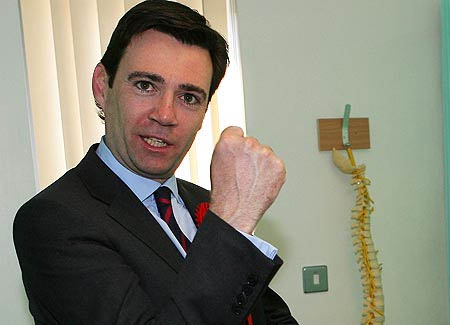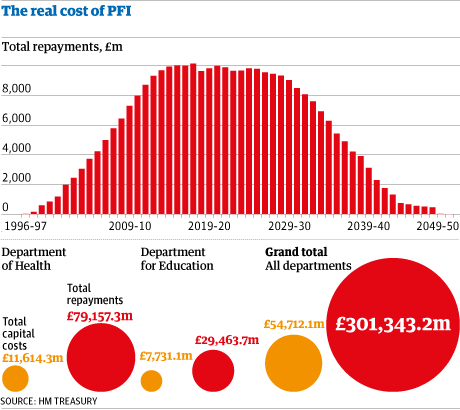Home » Posts tagged 'tax avoidance'
Tag Archives: tax avoidance
Burnham goes from strength to strength as ‘striker’, but who’s the David Moyes?
There’s no doubt Andy Burnham MP drives the Conservatives potty.
Despite the Conservatives’ best attempts to annihilate Burnham MP, Burnham keeps on scoring goals.
Meanwhile Jeremy Hunt continues to score blanks, apart from where profits from ‘Hot Courses’ are concerned.
But Burnham is more concerned about the day job, and that is running the NHS to a level of some degree of competence.
Hunt meanwhile continues to run his NHS into the ground, paying for costly advice on the managerial implementation of compassion, when he could be paying nurses to do the professional job they’re trained to do.
So Burnham can certainly hold his head up high as chief striker or scorer for Labour United.
As the Conservatives spit out the oranges from their half-time pep talk, as the oranges were in fact horsemeat due to the abolished Food Safety Agency, it’s time to recapitulate.
Clive Peedell kindly tweeted the other day points on which he would like Labour to play ball.
@legalaware @andyburnhammp 1. Fill £30bn funding gap by abolishing PFI & cracking down on tax avoidance 2. Get NHS exempted from TTIP
— Clive Peedell (@cpeedell) April 22, 2014
Before the 2010 election, Liberal Democrat leader Nick Clegg indeed condemned PFI as “a bit of dodgy accounting – a way in which the government can pretend they’re not borrowing when they are, and we’ll all be picking up the tab in 30 years”. It’s well known that PFI is a relic of the John Major government from 1995 (predating New Labour in fact). In opposition, Osborne pledged that the Conservatives would stop using PFI and denounced Labour for relying so much on a source of finance that he said was “totally discredited”. “We need to find new ways to leverage private-sector investment. Labour’s PFI model is flawed and must be replaced,” Osborne muttered in November 2009. Indeed Margaret Hodge, chair of the powerful Commons public accounts committee, said the coalition had failed to come up with the promised alternative since coming to power. The facts speak for themselves.
And Burnham is handicapped by not being the actual Secretary of State for Health at this crucial time for the NHS.
He nonetheless did go to Strasbourg last month to try to explain the case:
(This is a video recording I took of Andy’s talk at the Southwark Labour meeting recently.)
Labour will need to abolish PFI contracts or renegotiate them or both. But Ed Balls will need to be on the wing to help Burnham shoot. And it’s hoped the football manager is not asleep on the job. Labour has indeed proposed a five point plan to tackle ‘tax avoidance’. Labour supports a form of country-by-country reporting. It would extend the Disclosure of Tax Avoidance Schemes regime, which Labour introduced, to global transactions. It would open, further, open up tax havens, with requirements to pass on information about money which is hidden behind front companies or trusts. Crucially, Labour also wants to see fundamental reform of the corporate tax system. But Peedell’s work is not done.
@legalaware @andyburnhammp 3. Abolish purchaser provider split 4. Improve NHS accountability with transparency & openness — Clive Peedell (@cpeedell) April 22, 2014
The abolition of the purchaser-provider split remains one of the totemic political decisions to be made, as is not a ‘deal maker’ for many grassroots voters.
In fact, the whole issue of whether the general public is interested by public health or competition remains uncertain.
Nonetheless, a pioneering integrated healthcare scheme in New Zealand has improved the care of patients while reducing demand on hospital services.
On the contracting side, the report said that the abolition of the purchaser-provider split in the health system was important as it gave boards the autonomy to decide how to fund their hospitals.
The project was launched in 2007 in response to rising hospital admissions and waiting times and to a population that was ageing more rapidly than in other parts of New Zealand and other developed countries.
Similar to the drive towards whole person care in this jurisdiction, is aim was to create a “one system, one budget” approach to health and social care, together with various aspects as centrepieces: sustained investment in training, support for staff to innovate, and new forms of contracting, including abolition of the split between healthcare service purchasers and providers.
The outgoing NHS England chief executive Sir David Nicholson last year told HSJ his organisation was looking at “whether the straightforward commissioner-provider split is the right thing for all communities”.
Hospitals wish to focus on delivering better services to patients and often get frustrated by the amount of time they have to spend negotiating contracts with commissioners with the legal shutgun pointing in the direction of their necks.
And there’s no doubt there’s a steady stream of whistleblower tragedies, with Raj Mattu the latest in the long line of casualties.
People still struggle to think of a NHS whistleblower who has had a good outcome.
The Nursing Times ‘Speak Out Safely’ has only so far succeeded in signing up 30% of NHS Trusts.
Most people accept that the whole system is rotten, not least in how clinical regulators appear to pass the buck or even worse target whistleblowers.
Many do not think the Public Interest Disclosure Act, enacted by New Labour is 1998, is fit for purpose either.
So Clive Peedell is right, but Andy Burnham may have trouble in shooting goals on target with nobody on wing or a manager more concerned about ‘One Nation’.
Moyes, sacked by United on Tuesday after the 2-0 defeat at former club Everton on Sunday confirmed their failure to secure Champions League qualification, oversaw just 51 games in charge of the team after succeeding Sir Alex Ferguson last summer.
Moyes, like Ed Miliband, though had his army of people who thought he was doing a good job.
But Burnham like many, although focused on sorting out the undeniable problems of the NHS, is avoiding relegation for his team too.
I certainly don’t want to ask who the Ryan Giggs is. That certainly would be tempting fate.
Tony Blair’s NHS market and T-shirts in Bangladesh
I am doing a Dan Hodges. But this time it is against his ideological pin-up Tony Blair, who knew the price of everything but the value of nothing. He was the future once, but now is not the time for clichés.
Tony Blair once said, ‘I don’t care who is providing my NHS services, as long as they are the most efficient’. Had his views been alive and relevant today, they might equally have been applied to competitive tendering in the legal services sector. That sector too has also seen an ethos where profit rules; in a weird Darwinian ‘survival of the fitness’, human rights cases of massive social importance such as in housing or asylum are considered the lowest caste, compared to share acquisition of a multinational corporate. This is the attitude of anyone who would rather sell their own grandmother, than to look to a sustainable future.
“I don’t care who makes my T shirt as long as it’s the cheapest.” I would be very surprised if Primark and Matalan suffer a massive loss of trade as a result of public reaction to the collapsing sweatshop in Bangladesh. The similarity with the Texas fertiliser explosion is that there is no such thing as protection for workers by the Unions. Any country which has been trying to water down or to make workers’ rights non-existent, in the name of ‘industrial relations’, should think twice about whether they deserve to be called ‘a civilised country’. In this era of a maximum number of underemployed people with non-existent employment rights, and corporates making a killing weathering the recession, the public have to think: whose side is the government actually on?
ATOS are still achieving millions of profits, even though it is widely reported that administration of welfare benefits has caused immense mental distress as they have been do badly done; hence talk of why people cannot record their own assessment interviews as legal evidence, and the proportion of decisions made by ATOS which are overturned by the law courts on appeal. Add to that the staggering reports of people committing suicide because of their welfare benefits decisions (where it is incredibly difficult to prove causality); nonetheless, there is now a growing case of a link between mental illness and government policies of austerity in many jurisdictions.
Does it matter that the world has no morals but makes money? It does depend on your point-of-view, but will impact upon whether you feel that a leading sugary soft drinks multinational should be advising the current Obama administration on obesity. The building collapsing in Dhaka, and the subsequent fire, has brought out much disgust, which occasionally hits the mainstream media. But it all subsides again – attempts have been made to revisit history, so you will never find a clear account of the Bhopal explosion of the Union Carbide plant.
This issue of ‘corporate social responsibility‘ has been advanced most prominently by Prof Michael Porter at Harvard, and emphasises that corporates living as responsible members of society is not simply a matter of marketing and PR but extremely important for society. Broadly speaking, proponents of corporate social responsibility have used four arguments to make their case: moral obligation, sustainability, license to operate, and reputation. “Reputation” is odd when applied to the current NHS, because, despite efforts by the King’s Fund and the current Tory-led government, attempts at making the NHS ‘consumerist’ have been overwhelmingly unsuccessful. Porter, in Harvard Business Review in October 2006, wrote: “In stigmatized (sic) industries, such as chemicals and energy, a company may instead pursue social responsibility initiatives as a form of insurance, in the hope that its reputation for social consciousness will temper public criticism in the event of a crisis. This rationale once again risks confusing public relations with social and business results.”
Legally, private limited companies have a duty for their directors to promote the ‘success’ of the company, i.e. profitability in the narrowest sense, under the Companies Act (1996). The idea of improved competition driving quality is strangled at birth by the fact that imperfect markets do nothing but encourage collusive behaviour in pricing, little choice in product, and massive profits for the shareholders. The concomitant ‘improvement’ in quality is barely noticeable. This has been the consistent outcome of all the privatisations in England, such as gas, water, electricity, and telecoms, where the consumer has suffered in an overpriced, fragmented service; Royal Mail will be next.
The Bangladeshi Fire is a human tragedy of unfathomable proportions, and is entirely driven by a consumerist culture where people appear do not care how the product arrives on the table, so long as it is there most ‘efficiently’. Of course, employment laws are there to protect the welfare of T-shirt makers, but this is what the Conservative government call ‘unnecessary red tape’ when applied in this country. The fire also poses serious questions about how we do business while Cameron pursues his ‘global race’. If Britain is not careful, it can easily outsource functions to abroad, and make as much of them as cheaply as possible. Diagnosis of dementia could be through an automated innovated server in Thailand, delivered by a multinational, with its head office in one of the Channel Islands to avoid tax maximally, to deliver healthy private equity profits. While it may not be the Unions that hold the country ‘to ransom’ any more, the power behind closed doors of private equity and bankers is not to be underestimated in the pursuit of profit.
Before going down the commodification of healthcare and the “Tony Blair dictum”, spend one moment thinking about exploding fertiliser plants in Texas or buildings collapsing in Bangladesh, as the lessons for business there could be salient for our increasingly privatised National Health Service (achieved entirely undemocratically.)



